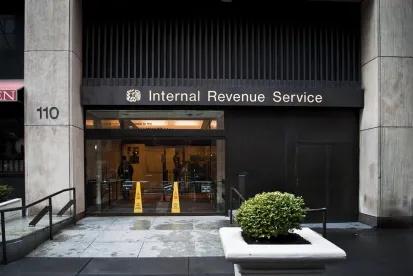Loans under the Payroll Protection Program (PPP) are eligible for forgiveness depending upon whether and when the loan proceeds are used for qualified business expenses. One of the benefits of this program is that there is no taxable income for the borrower upon loan forgiveness. While many borrowers were expecting to deduct business expenses as would be the case if there has not been a PPP loan, the US Department of the Treasury’s (Treasury) position has been that PPP expenses resulting in loan forgiveness cannot be deducted for federal income tax purposes due to the tax benefit rule under Code Section 265. See discussion of Notice 2020-32 in our previous On the Subject here. A PPP loan can generally be used for payroll costs, interest on mortgage obligations, rent and utilities, which may or may not qualify for loan forgiveness under US Small Business Administration (SBA) rules and guidance. Other types of expenses that can be paid with PPP loans, such as interest on other types of existing debt obligations, cannot qualify for loan forgiveness.
IN DEPTH
There has been discussion after Notice 2020-32 as to whether Section 265 applies to deny a tax deduction for PPP expenses incurred in 2020 if the application for loan forgiveness is not filed as of the end of the year. Practitioners questioned if Section 265 could apply to PPP expenses when the eligibility to take the PPP loan, and the extent to which the PPP loan will be forgiven, is not established before the end of the taxable year. Among other things, a PPP loan can be used for expenses that do not qualify for loan forgiveness, and the amount of loan forgiveness can be reduced under complicated rules that remain unclear.
In Rev. Rul. 2020-27, however, Treasury reiterated its position by concluding that the tax benefit rule applies to PPP expenses paid with the proceeds of a PPP loan irrespective of when the PPP loan is forgiven so long as the taxpayer reasonably expects that the loan proceeds used to pay PPP expenses will eventually be forgiven. The Internal Revenue Service (IRS) states in this ruling that the timing of the forgiveness of the loan is not relevant because Section 265(a) turns on whether a deduction is allocable to a class of tax-exempt income without regard to whether such income is received or accrued. Many employers that have had difficulty understanding the ever-changing rules under PPP may find it particularly irksome that this ruling describes the existing loan forgiveness procedures as “clear and readily accessible guidance”. If it turns out that a taxpayer paid or incurred PPP expenses in the 2020 taxable year for which no deduction is permitted because, at the end of the 2020 taxable year, the taxpayer reasonably expects to receive forgiveness of the loan, but the taxpayer is unable to subsequently secure loan forgiveness in whole or in part, there is a companion revenue procedure that provides a “safe harbor” under which a taxpayer can claim a deduction in 2020 or in a subsequent year (see here).
Treasury’s position in Notice 2020-32 and Revenue Ruling 2020-27 has been heavily criticized by employers, practitioners and key legislators that were involved in enacting the Coronavirus Aid, Relief and Economic Security (CARES) Act, including Senate Finance Committee Chair, Chuck Grassley (R-Iowa), Ranking Member Ron Wyden (D. Ore) and Chair of the Ways and Means Committee, Richard E. Neal (D-Mass). While the CARES Act did not expressly address the application of the tax benefit rule, Treasury’s position in pushing a questionable interpretation is puzzling. In particular, it is unclear why Congress would have provided only for tax forgiveness when a tax deduction for many taxpayers might be more valuable from a cash flow perspective, particularly when taking into account that taxpayers may have counted on those deductions when determining 2020 estimated tax payments.
Relief appears to be on the way from Congress. On December 14, lawmakers unveiled a draft of the Bipartisan Emergency COVID Relief Act of 2020, which includes a provision allowing deductions for PPP expenses that result in PPP loan forgiveness. The proposed legislation would provide, in relevant part, that “[N]o deduction shall be denied or reduced, no tax attribute shall be reduced, and no basis increase shall be denied, by reason of the exclusion from gross income [of the forgiveness of PPP loans].” As the bill’s name suggests, it has received bipartisan support. Moreover, Congress will have to take some action by December 18 to avoid a federal government shutdown. Nonetheless, unless relief is enacted, taxpayers should calculate estimated taxes with the understanding that the IRS will likely challenge the deductibility of expenses that are paid for with PPP loan proceeds and with the understanding that they may need to adjust their calculations depending on whether relief is passed this session.





 />i
/>i
